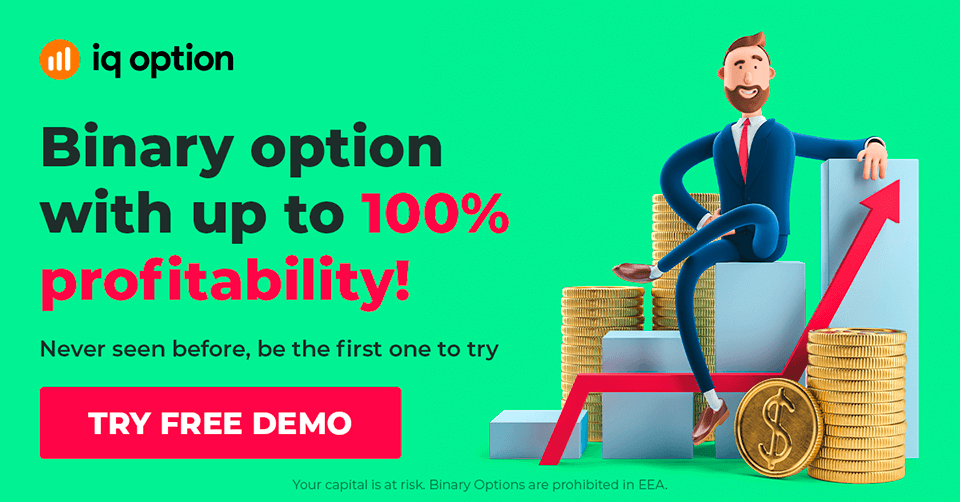Understanding the Exponential Moving Average Filter: A Comprehensive Guide
Understanding the Exponential Moving Average Filter An exponential moving average (EMA) filter is a powerful tool used in signal processing and time …
Read Article
When it comes to building a successful trading system, one of the most critical decisions is choosing the right database. A trading system relies heavily on data, and the database is where this data is stored, retrieved, and analyzed. With so many options available, it can be overwhelming to determine which database is best for your trading system.
There are several factors to consider when selecting a database for your trading system. First and foremost, you need to evaluate the speed and scalability of the database. Speed is essential in a trading system, as milliseconds can make a significant difference in executing trades. Scalability is also crucial, as your trading system may need to handle a large amount of data as it grows.
Another factor to consider is the reliability and durability of the database. A trading system operates in a dynamic and fast-paced environment, so it’s crucial to have a database that can handle high volumes of data without crashing or losing any information. Durability is also essential, as you want to ensure that your data is safe and can be recovered in case of any failures.
Data integrity is yet another critical factor to consider when choosing a database for your trading system. Accuracy and consistency of data are paramount, as any discrepancies or errors can lead to significant financial losses. Look for a database that offers strong data integrity features, such as transactional support and data validation.
Finally, consider the cost and licensing of the database. While there are free and open-source options available, keep in mind that the cost of the database is a long-term investment. You want a database that can support your trading system’s growth without breaking the bank.
In conclusion, choosing the best database for your trading system is a complex decision that requires careful consideration. By evaluating factors such as speed, scalability, reliability, durability, data integrity, and cost, you can make an informed choice that will support the success and growth of your trading system.
When it comes to building a trading system, choosing the right database is crucial for ensuring optimal performance and reliability. With the increasing volume of data and the need for real-time analytics, it’s important to consider several factors before making a decision. In this article, we will explore the top options and factors to consider when choosing the best database for your trading system.
One of the key factors to consider is the scalability of the database. As your trading system grows, the amount of data it needs to handle will also increase. Therefore, it’s important to choose a database that can scale horizontally by adding more servers to handle the increased load. This will ensure that your trading system can handle the increasing demands without any performance issues.
Another important factor to consider is the speed and responsiveness of the database. In the fast-paced world of trading, even a slight delay in accessing the data can have significant consequences. Therefore, it’s crucial to choose a database that can provide low-latency access to the data, allowing your trading system to make real-time decisions.
Data integrity and reliability are also crucial factors to consider. Your trading system will be handling critical financial data, and any inconsistencies or data loss can have severe consequences. Therefore, it’s important to choose a database that has built-in mechanisms for ensuring data integrity, such as support for transactions and data replication.
The type of data your trading system handles should also be taken into account. Do you need to store and analyze tick data, order book data, or historical trade data? Different databases excel in handling different types of data. For example, if you need to store and analyze large volumes of time-series data, a time-series database may be the best choice.
Read Also: Understanding the moving average and CCI: A beginner's guide
Furthermore, the database should have robust security features to protect your sensitive financial data. This includes encryption of data at rest and in transit, access control mechanisms, and audit trails. It’s important to choose a database with a proven track record of security and compliance.
| Factor to Consider | Top Database Options |
|---|---|
| Scalability | Apache Cassandra, MongoDB |
| Speed and Responsiveness | MongoDB, Redis |
| Data Integrity and Reliability | Oracle Database, PostgreSQL |
| Type of Data | InfluxDB, KDB+ |
| Security | Microsoft SQL Server, Oracle Database |
Lastly, it’s important to consider the cost and licensing implications of the database. Some databases come with a hefty price tag, while others are open-source and free to use. It’s important to weigh the cost against the features and performance offered by the database to make an informed decision.
In conclusion, choosing the best database for your trading system requires careful consideration of factors such as scalability, speed, data integrity, security, and cost. By evaluating these factors and exploring the top database options available, you can make an informed decision that will ensure optimal performance and reliability for your trading system.
When choosing a database for your trading system, there are several top options to consider. These databases have been specifically designed to handle the high volume of data and the complex queries required by trading systems. Here are some of the top options:
Read Also: Are Tikka stocks bedded? Find out the truth here!2. PostgreSQL: PostgreSQL is another open-source database management system that is well-suited for trading systems. It offers advanced features such as support for complex queries, transactional integrity, and high availability. PostgreSQL also has a strong reputation for its performance and reliability. 3. MongoDB: MongoDB is a popular NoSQL database that is often used in trading systems. It offers high scalability, flexibility, and performance, making it ideal for handling large amounts of data. MongoDB also supports a wide range of data types, making it easy to store and retrieve complex trading data. 4. InfluxDB: InfluxDB is a time series database that is specifically designed for handling time-stamped data, which is commonly used in trading systems. It offers high write and query performance, as well as integrations with popular trading platforms and tools. InfluxDB also supports data retention policies, which can be useful for data archiving and compliance purposes.
 5. Redis: Redis is an in-memory data store that is often used as a caching layer in trading systems. It offers high performance and low latency, making it ideal for storing frequently accessed data. Redis also supports advanced data structures and provides features such as persistence and replication.
5. Redis: Redis is an in-memory data store that is often used as a caching layer in trading systems. It offers high performance and low latency, making it ideal for storing frequently accessed data. Redis also supports advanced data structures and provides features such as persistence and replication.
These are just a few of the top options for your trading system database. Each option has its own strengths and considerations, so it’s important to evaluate your specific requirements and choose the database that best meets your needs.
When choosing a database for a trading system, there are several factors to consider. First, scalability is important as trading systems can generate a large volume of data. Second, a database with low latency is necessary to ensure real-time processing of market data. Third, reliability and data integrity are crucial to avoid any data loss or corruption. Fourth, robust querying and analytics capabilities are needed for analyzing the trading data. Lastly, security measures, such as encryption and access controls, should be in place to protect sensitive trading data.
There are several popular databases used in trading systems. One of the most common options is traditional relational databases like Oracle or Microsoft SQL Server. These databases are known for their reliability and robustness. Another popular choice is time-series databases like InfluxDB or kdb+, which are designed to handle large volumes of time-stamped data efficiently. Some trading systems also utilize NoSQL databases like MongoDB or Cassandra, which offer excellent scalability and flexibility. Ultimately, the choice will depend on the specific requirements and preferences of the trading system.
Real-time processing is crucial in a trading system database. In trading, every second counts, and delays in processing market data can have significant implications. A database with low latency ensures that the trading system can quickly receive, process, and respond to market events in real time. This allows traders to make timely decisions and execute trades without delay. Additionally, real-time processing enables accurate and up-to-date data analysis, which is essential for generating insights and identifying trading opportunities.
Security is paramount in a trading system database. Some important security measures include encryption of sensitive data, both at rest and in transit, to prevent unauthorized access. Access controls should be implemented to restrict database access to authorized users only. Audit logging should be enabled to track any changes or access to the database. Regular backups and disaster recovery plans should be in place to protect against data loss. Additionally, data privacy regulations, such as GDPR, should be followed to ensure compliance and protect the personal information of traders.
Scalability is important in a trading system database due to the large volume of data generated. Trading systems can generate a vast amount of market data, including trade orders, transactions, price data, and more. A scalable database can handle the growing data volume without performance degradation. It allows for efficient storage and retrieval of data, ensuring that the trading system can handle increasing trade volumes and accommodate future growth. Without scalability, the database may become a bottleneck, slowing down the entire trading system and affecting its performance.
Understanding the Exponential Moving Average Filter An exponential moving average (EMA) filter is a powerful tool used in signal processing and time …
Read ArticleGuide to Intraday Options Trading Options trading is a complex and exciting field that can offer lucrative opportunities for investors. Among the …
Read ArticleDiscover the Safest Approach to Selling Options Options trading can be a highly profitable venture, but it is not without its risks. Selling options …
Read ArticleIs USDCAD Bullish or Bearish? The USD/CAD currency pair represents the exchange rate between the US dollar and the Canadian dollar. Traders and …
Read ArticleIs Binary Options Open on Weekends? Binary options trading is a popular and exciting way to invest in financial markets. It allows traders to earn …
Read ArticleSalary of a HSBC Trader in London: How Much Can They Earn? When it comes to working in the financial industry, one of the most coveted positions is …
Read Article